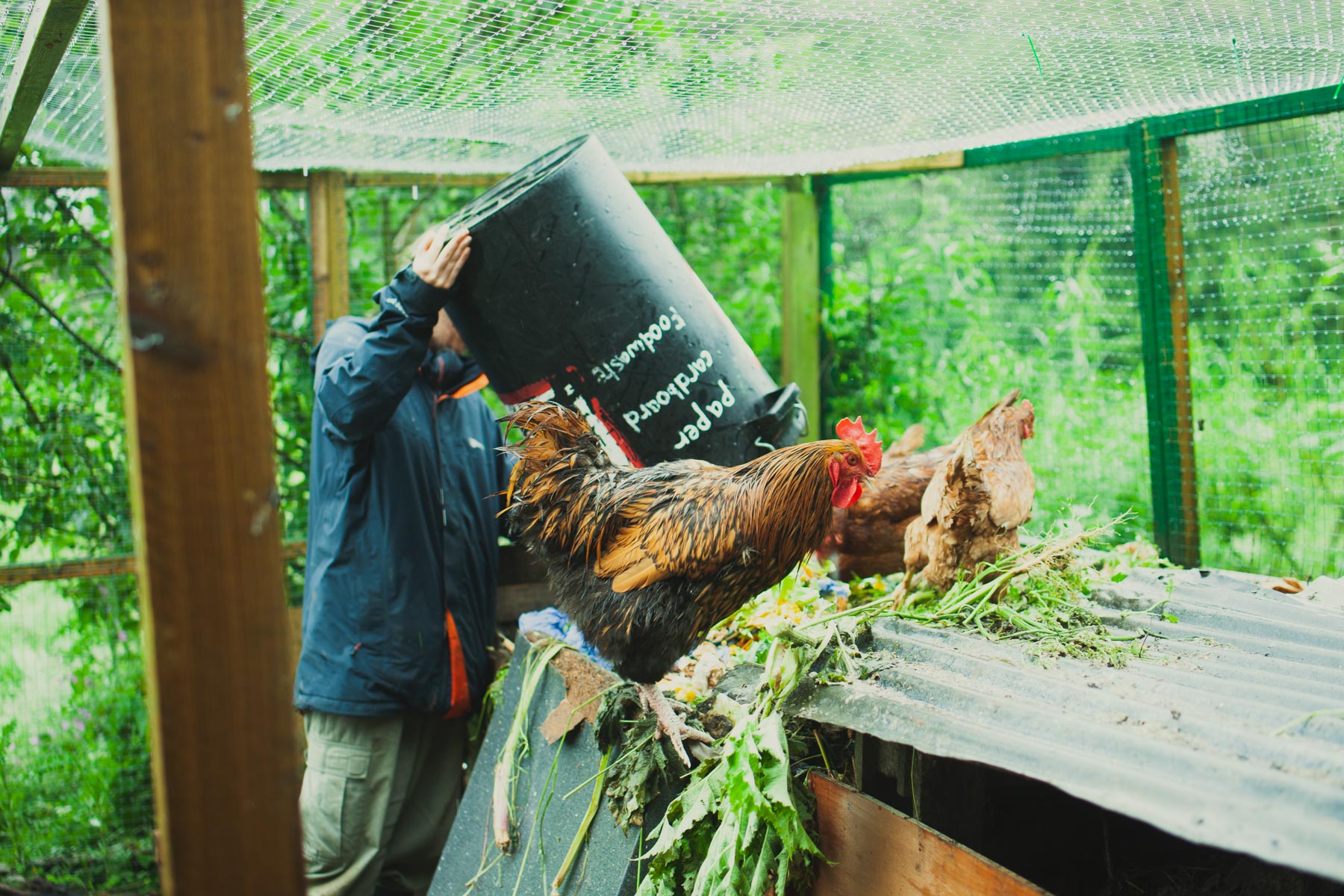Europe’s only Jewish community farm is currently under threat of eviction. Sadeh Farm is located on a Jewish heritage site in Kent known as Skeet, which has been in the Jewish community for 80 years. In 2018 Sadeh, a group of Jewish environmental educators and activists, were given a 10 year lease by the site’s owners, the Jewish Youth Fund (JYF), to run the historic house and grounds of Skeet. In January of this year, JYF announced an intention to end Sadeh’s lease early, and sell the site to the highest bidder.
Jewish farming is a growing movement, especially among young Jews. While the United States is a home to a growing number of Jewish agricultural projects and networking organizations like the Jewish Farmer Network, Sadeh is the only Jewish community farm in Europe. In a moment where environmental concerns are a fever-pitch issue for most young Jews across the diaspora, Jewish farming projects create a needed link between religious values, ritual community, and climate justice. Sadeh’s closure threatens to damage the future of this emerging global Jewish youth movement.
“Living at Sadeh as a student is a blessing. I took a homework break walk in the moonlit field one night and saw a meteor. I zoomed my way through classes. After swimming in the pool lit by a single candle, listening to ambient and trap music, I sat in my bed with wet hair, notebooks and dictionaries, and studied Talmud,” said Myski Simkin, a Jewish student who spent time as a Sadeh Fellow in 2021. “Sadeh encouraged fellows to become teachers as well as students, motivating us to run activities with guests, work on personal projects, share poetry, songs, and other nourishments with each other.”
For Jewish students who have spent formative time in Sadeh’s fellowship programs, Sadeh’s eviction would be devastating.
“The Jewish student world would be bereft and honestly vapid in the wake of Sadeh’s closure. For young Jews, this is a place to meet mentors.” Simkin said. “Where else can we queerly gather to splatter paint onto the Shabbas bride’s white gown, humming lekha dodi? Where else can we descend into a wombed Havdalah garden planted with fragrant besamim, shaking evening primrose filled with tiny seeds into a musical instrument, make blessing on elderflower cordial under a fingernail moon, then learn Maya’s Yiddish songs around the fire? The way we steward and imbue ourselves into the land at Sadeh is exemplary of our commitment to doikayt – hereness.”
On May 26th 2022, Sadeh launched a public campaign to save the historic Jewish site. Supporters have used the the hashtag #SaveSadeh on Facebook, Instagram and Twitter, sharing testimonials attesting to the huge impact Sadeh has on the Jewish community, particularly Jewish youth.
On instagram, a Jewish teen named Chani, 13, wrote “Sadeh empowers me to go into my teenage-hood feeling that I can be myself and embracing the wonder of the outdoors…If it wasn’t for Sadeh I would most likely be at home watching on screens and eating junk food.”
Sadeh has become a communal hub for alternative Jewish organizing in Europe, connecting to co-sponsor events with other independent, progressive Jewish organizations. “Sadeh helped us start the café and run our first big online event, Purim 5781/2021,” wrote pink peacock cafe, a queer yiddish cafe in Glasgow. “Without them European Jewry would be poorer, less connected to the land, and we wouldn’t exist!”
“Sadeh has been so formative for many of us on the editing team for so many years,” wrote Yente, a queer Jewish student collective of writers and artists based in the University of Oxford, in an instagram post supporting the efforts to save the farm.
Chief Rabbi Ephraim Mirvis affirmed the importance of the organization’s role in the European Jewish communal ecosystem. “I know Sadeh Farm to be an exceptional facility, creating impactful educational experiences for all, especially young people, helping them to understand the importance of sustainability & care for our environment,” he said. “This would be a real loss to our community and I sincerely hope that a favourable solution will be found.”
Sadeh was given their lease on the condition that they kept the house in the same condition they had received it and that they met the JYF’s charitable objectives of providing for Jewish Youth. Sadeh maintains that they have more than fulfilled their side of this bargain.
According to an article in the Guardian, The Jewish Youth Fund responded solemnly to panic about the sale. “The Jewish Youth Fund admires the education work that Sadeh does with schools and families,” a spokesperson said, “but this is outside our remit. The reconfigured building, with its much-reduced capacity of about 28 in en suite bedrooms, is now completely unsuited to youth groups. This has created an impossible problem for us as it is a non-income generating asset not being used in line with the charity’s objectives.”
However, Sadeh reports that they have invested £40,000 per year in major improvements since 2018, turning the neglected house and grounds into a successful guesthouse, cross-communal educational centre, and the only Jewish community farm in Europe. Hundreds of guests, 80% under 20, visited last year. Skeet, the site upon which Sadeh sits has Jewish history going back to 1943, when working-class Jewish youth from the East End of London, many of them children of refugees, arrived there for respite from the horrors of the Second World War. Sadeh’s presence reinvigorates this historical site, paying homage to the Jewish youth who first made their homes there.
Before the surprise announcement of the sale of the site, Sadeh received no correspondence from the Jewish Youth Fund indicating that they felt Sadeh was not meeting the terms of their lease.
The site is already on the market, and there are two weeks until bids are in. If no action is taken, it is highly likely that this important Jewish heritage site, along with Sadeh, will disappear. Sadeh asks only to stay until the end of their lease in 2028. In the meantime, they will actively seek to buy the property. This would allow both the JYF and Sadeh to achieve their objectives.
“What could be more important for Jewish youth,” said Talia Chain, the original founder of Sadeh, “than ensuring they have a planet to live on, and our community – like all others – has a future? That’s what we’re trying to achieve here.”
Sadeh urges the Jewish community to write to the JYF in support of Sadeh, and continue sharing their testimonials on social media with the hashtag #SaveSadeh. For all those who have grown both vegetables and their own spirits on Jewish agricultural sites like Sadeh, the future of a global Jewish farming movement is at stake.
If you would like to support the future of Jewish agricultural projects in Europe, share a testimonial to #SaveSadeh on social media and learn more about the efforts to preserve this historical Jewish community farm here.
Featured photo courtesy of Sadeh.

